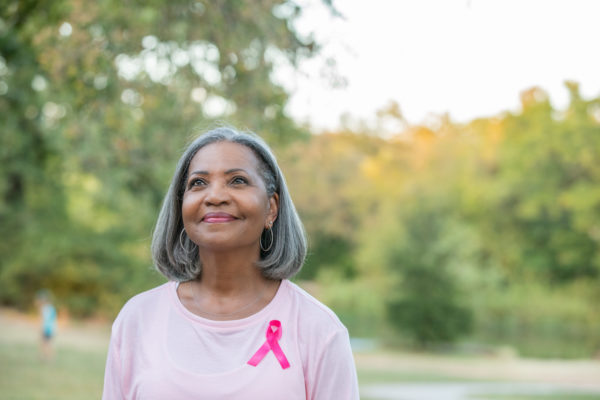
Exercising during breast cancer treatment has been shown to have many benefits. It can reduce fatigue and improve cardiovascular fitness, strength, balance, and overall confidence and emotional well-being.
For people with breast cancer, exercise is typically safe to continue throughout treatment, including during chemotherapy, radiation therapy, and surgery. However, certain exercises may require modification based on your fatigue levels, and different precautions may need to be taken at different phases of your treatment plan.
It is important to remember that each person with breast cancer is unique, and your personal tolerance for movement during breast cancer treatment may vary. Always talk with your health care team if you have any questions or concerns about exercising during treatment. Your health care team can refer you to a physical therapist or trained breast cancer exercise specialist who can tailor your exercise program to meet your specific needs and goals.
Developing an exercise plan during breast cancer treatment
Before recommending an exercise plan, a trained physical therapist, exercise specialist, or other member of your health care team will take measurements to assess your starting fitness level. This will help them recommend an exercise plan that is driven to meet your goals and is appropriate for your cancer treatment plan. There are many factors that can impact the intensity and frequency of your exercise program during cancer treatment, including what your prior exercise routine was like, the intensity of your treatment plan, your prior cardiovascular health, other health conditions you may have, and your personal interests.
Most types of exercise are OK to continue during breast cancer treatment, although certain exercises may need to be modified. The important thing is to find something you enjoy and to include variety in your exercise program. This will help keep you active and help with managing the various side effects you may encounter during cancer treatment. Always talk with your health care provider before starting a new exercise program to make sure it is safe for you.
The common challenges of exercising during breast cancer treatment
Chemotherapy, radiation therapy, and surgery can all bring with them different challenges to exercising. No 2 people are the same, and people with cancer will encounter differing degrees of setbacks that may require them to modify their exercise program. Similarly, it is also important to remember that no 2 days are the same. Some days you may feel up for a 3-mile walk, while other days it is all you can do to get around the block.
Both of these scenarios are OK. Listening to your body throughout your course of care is crucial. I always like to tell my patients the important thing is that you did something, even if that may just be walking to the end of the driveway and back a few times that day.
Common exercise challenges patients experience based on the type of cancer treatment given and how to address them.
Chemotherapy. Many people receiving chemotherapy experience varying degrees of nausea, fatigue, neuropathy that can impact balance, and a sense of weakness. You can help manage these side effects by performing smaller bouts of exercise. Try 3 or 4 sets of 10 to 15 minutes of exercise throughout the day as opposed to 1 longer exercise session to help prevent you from feeling exhausted after exercise. You can also try performing the exercises with less weight or fewer repetitions, as necessary. Talk with your health care team about specific modifications for you.
Radiation therapy. People receiving radiation therapy may encounter stiffness in the breast and upper arm area after radiation, which can make it hard to reach overhead or away from the body. Some people may have skin break down toward the end of their radiation treatment. It is very important to stretch throughout the course of your radiation treatment. Modifying the intensity of these stretches is key based on whether your skin has broken down and, if so, by how much. Please talk with your health care team about what type of stretching is recommended for you.
Surgery. The type of surgery you have will determine the modifications that may be required for your exercise program. Having a lumpectomy, a mastectomy with or without reconstruction, or lymph nodes removed will all have their own set of challenges and recovery needs. The type of reconstruction you choose will determine how quickly you can begin mobility, strengthening, and endurance exercises. Typically, you can begin walking right after surgery, so you can continue to stay active even in small doses. It is important to ask your surgeon what types of precautions you should take and limitations you may have after surgery, so you can adequately prepare.
Questions to ask your health care team about exercising during breast cancer treatment
It is important to have ongoing conversations with your health care team about your goals to stay active while going through treatment. Here are a few questions you can use to start the conversation with your health care team based on what type of treatment you are receiving.
If you are receiving chemotherapy:
- Do I need to modify exercise if my blood cell counts are low?
- Are there any times when I shouldn’t be exercising?
- Is there a period after my port is placed that I need to avoid lifting or reaching at a certain height?
- How can I stay active if I am experiencing nausea or fatigue?
If you are receiving radiation therapy:
- How can I modify my exercises if there is skin breakdown on the breast?
- What can I put on my skin to prevent it from breaking down?
If you are receiving surgery:
- Are there any lifting restrictions while I recover from this surgery, and if so, for how long?
- When is it safe to start strength training after my procedure?
- Is it OK to lie flat?
- Will I have any mobility restrictions after this procedure?
If at any point you feel like you need more specific guidance or help during your treatment, please contact us so we can help you find a plan that works specifically for you.
Want more content from TJC? Check us out on Facebook!
This blog was originally written by TJC-Skyline’s Clinic Director, Dr. Sara Acheson, for Cancer.net – Thanks Dr. Acheson!

















